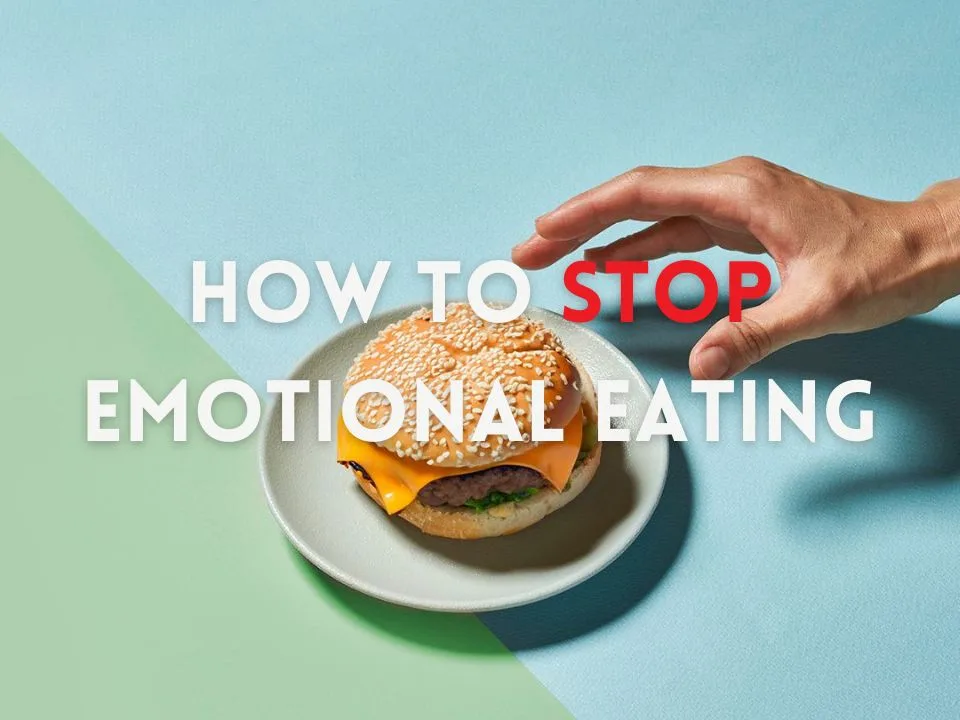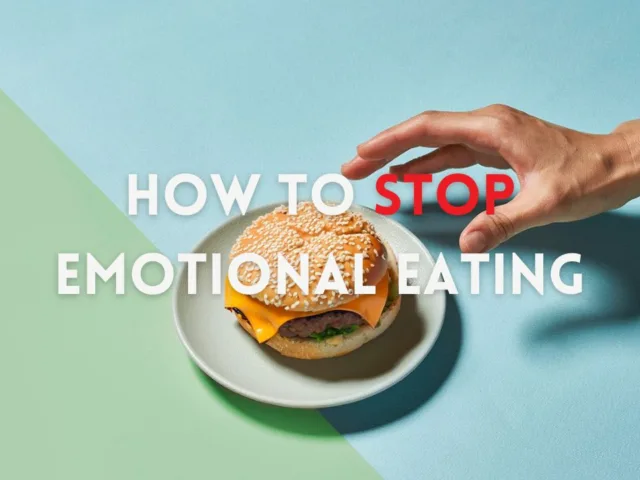
Emotional eating is a common response to stress, sadness, boredom, or even happiness. It involves consuming food not out of hunger but as a coping mechanism for emotional distress. While occasional indulgence is normal, chronic emotional eating can lead to weight gain, poor health, and a vicious cycle of guilt and shame.
Fortunately, there are effective strategies to break free from this pattern and cultivate a healthier relationship with food.
How To Stop Emotional Eating?

Emotional eating is often driven by a desire to soothe uncomfortable feelings rather than to satisfy physical hunger. It’s essential to recognize the triggers and underlying emotions that prompt this behavior. Common triggers include stress, anxiety, loneliness, boredom, and sadness. By becoming more aware of these triggers, individuals can begin to address the root causes of their emotional eating patterns.
1. Identify Triggers
Start by keeping a food diary to track eating habits and associated emotions. Note the times when you feel the urge to eat emotionally and the emotions you’re experiencing at those moments. Look for patterns and common triggers that lead to emotional eating episodes. Identifying triggers is the first step towards developing healthier coping mechanisms.
2. Develop Alternative Coping Strategies
Once triggers are identified, work on developing alternative coping strategies to deal with emotions without turning to food. Experiment with different activities that provide comfort and relief, such as exercise, meditation, deep breathing exercises, journaling, or engaging in hobbies. Find what works best for you and incorporate these strategies into your daily routine.
3. Practice Mindful Eating
Mindful eating involves paying full attention to the sensory experience of eating, including the taste, texture, and aroma of food, as well as your body’s hunger and fullness cues. Slow down and savor each bite, chewing slowly and appreciating the flavors. Avoid distractions like TV or smartphones while eating, allowing yourself to fully focus on the meal.
By practicing mindful eating, you can develop a greater awareness of your body’s hunger signals and distinguish between physical hunger and emotional cravings.
4. Build a Support System
Seek support from friends, family, or a therapist who can offer encouragement, understanding, and guidance on your journey to overcome emotional eating. Share your struggles and victories with them, and don’t hesitate to ask for help when needed. Joining support groups or online communities focused on mindful eating and emotional wellness can also provide valuable resources and a sense of belonging.
5. Reframe Your Relationship With Food
Shift your mindset from viewing food as a source of comfort or punishment to seeing it as nourishment for your body and fuel for a healthy, active lifestyle. Practice self-compassion and forgiveness, recognizing that occasional slip-ups are part of the process. Instead of labeling foods as “good” or “bad,” strive for balance and moderation in your eating habits. Focus on incorporating nutrient-dense foods that support your overall well-being while still allowing yourself to enjoy occasional treats in moderation.
Overcome Your Emotional Eating Before It’s Too Late!

Image via Aspire Health Plan
Emotional eating can be a challenging habit to break, but with awareness, patience, and practice, it is possible to regain control and cultivate a healthier relationship with food. By identifying triggers, developing alternative coping strategies, practicing mindful eating, building a support system, and reframing your mindset, you can overcome emotional eating and create a more balanced and fulfilling life.
Remember that progress takes time, so be kind to yourself and celebrate each step forward on your journey towards wellness.










